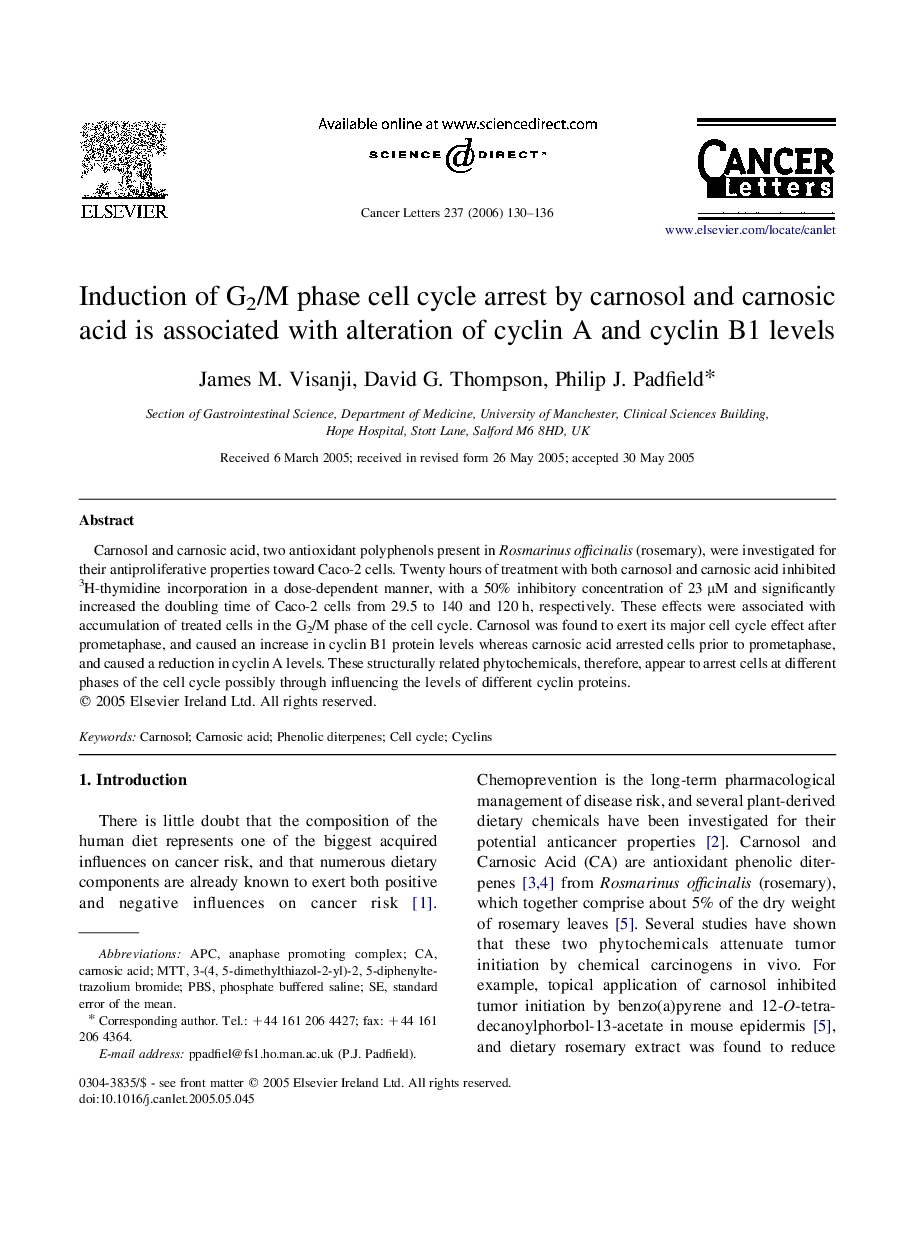| Article ID | Journal | Published Year | Pages | File Type |
|---|---|---|---|---|
| 2115897 | Cancer Letters | 2006 | 7 Pages |
Carnosol and carnosic acid, two antioxidant polyphenols present in Rosmarinus officinalis (rosemary), were investigated for their antiproliferative properties toward Caco-2 cells. Twenty hours of treatment with both carnosol and carnosic acid inhibited 3H-thymidine incorporation in a dose-dependent manner, with a 50% inhibitory concentration of 23 μM and significantly increased the doubling time of Caco-2 cells from 29.5 to 140 and 120 h, respectively. These effects were associated with accumulation of treated cells in the G2/M phase of the cell cycle. Carnosol was found to exert its major cell cycle effect after prometaphase, and caused an increase in cyclin B1 protein levels whereas carnosic acid arrested cells prior to prometaphase, and caused a reduction in cyclin A levels. These structurally related phytochemicals, therefore, appear to arrest cells at different phases of the cell cycle possibly through influencing the levels of different cyclin proteins.
